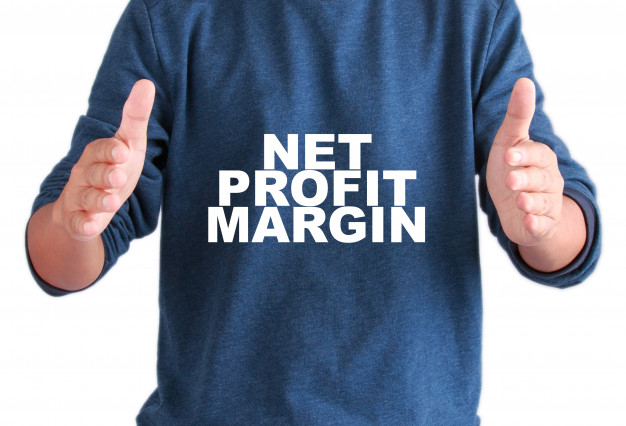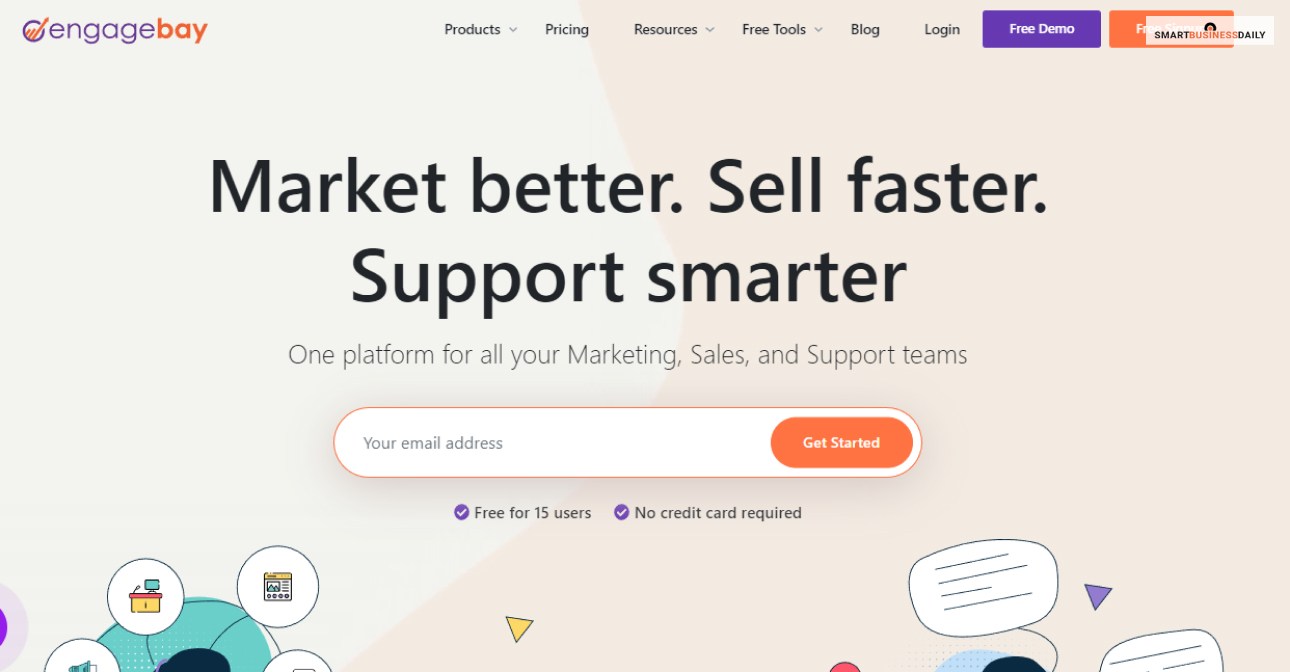Retail Management: Definition, Processes, Practices [Full Guide]
9 Mins Read
Published on: 31 March 2022
Last Updated on: 16 January 2025

toc impalement
Retail management is the process of making the customer procure the things from the shop of their liking. This process helps the customers to guide to the retail shop and made them buy their required merchandise.
Retail management makes the shopping experience of the customers, a pleasurable one. And try to make sure that when they leave the shop, they are satisfied with the experience. This makes them more prone to come to the same shop next time.
It has become one of the fastest-growing industries with a tremendous economy.
What Is Retail Management & How It Is Important?

We all know that retail management tries its best to give the best experience to the customers.
But, is it necessary? Is it important? Is it really helpful in increasing sales?
If you are asking all these questions, then yes would be the answer to all of your questions.
Example
Let me explain to you with an example, you want to buy jeans. You went to a nearby store. You placed your size and asked the retailer to show you one.
It took 30 minutes to find one. You purchased the jeans and left the shop irritated.
Will you ever walk into that shop again? No, you will not visit the same shop twice, where you have gained a bad experience, right.
This much difference retail management can cause.
Let me give you another example, suppose you have a shop and you get lots of traffic in your shop. There are many products in the shop. But the products are not arranged in categories.
It becomes hard for the customer to find the right merchandise they are searching for. So, they will let your shop without buying anything. This is the result of poor management. If the products would have been arranged in categories it would have been easy for them to find the desired products.
So now you are getting my point about why retail management is necessary.
The Retail Processes
If we consider retail management a process then many steps are required to make a successful one.
In retail management, there are several steps which are needed to be taken care of.
Planning
It is necessary to have a good plan so that the resources are utilized well or there is no misuse of the resources.

In retail management, planning is what makes the business to walk on a successful path. Planning itself is divided into many subparts:
1. Market Research
Well, you have decided to walk the path of the retail industry. Have you decided what to sell? What to sell? Where to sell? Who to sell?

If you decided to have a retail business then you need to find the answer to the above question.
For example, you want to open a supermarket show then you need to do market research that who are your competitors? What kind of merchandise do they sell? What kind of audience do they attract? How do they retain their audience?
You need to do thorough research on everything that can come in handy.
2. Logistics
This includes the transfer of goods from the suppliers to your shop. All the transportation options, all the expenses in transportation, everything. Time is also a crucial part of logistics. You need to time each and everything.
Logistics is not only about the external part but it also includes the internal part. Like handling staff, having a good idea of your storehouse, etc.
3. Expenses
Well, profit can be made by only getting ROI more than the investment. So, it is necessary to always keep tabs on the expenses. Formulating budgets for everything can be a great start to not wasting money on lesser things.

In this phase, you need to look at each and everything where expenses are required. Expenses like bills, wages, transportation costs, etc. To not turn these expenses into a burden for your retail, you had better use the retail store funding option that will stabilize your cash flow and will assist financial performance improvement in your retail management. Receiving an amount of cash based on your invoices will be a good solution to dealing with expenses.
4. Profit Margin
Being a businessman means you need to have an appropriate profit margin on the sales you make.

Keeping a profit margin can become tricky at times. Settling on the right amount is very hard. Especially when you are a new company. To attract customers you lower the price, this can create suspicion among the customer over the quality of the product.
Settling on the price can also be experimental and can take time to fix appropriate prices for the product.
5. Staffing
Staffing depends on the size of the store. You need to have enough staff that you are not facing a shortage when needed. Many times, what happens is you hire more staff than it is needed, this all is wasted plans which can affect your revenue. So be selective a wise while staffing your store.

You also have to make sure to encourage your staff from time to time this keeps their morale high and loyal to your shop. Think like this if you are gaining an extra profit then distribute them among the employee as well. This keeps them happy.
6. Inventory Management
Inventory is the biggest asset of the company. If you don’t have any goods, what worth does your company has?
So, it’s better to always check your inventory supplies.

Filling the inventory has three conditions:
- Restocking: this is when you have to order from the suppliers to refill the inventory
- Understocking: this is the condition when the demands are high than your stocks.
- Overstocking: this is the condition when the stocks are hight than the demand.
Buy
This is the process of getting your product from the suppliers for you to sell. To buy you the product you must do decent market research from which supplier you can best product with lesser rates. This can increase the ROI if the supplier is chosen correctly.
Move
This phase includes the transportation of the goods, storing them into the inventory, restacking them on the shelves, and then fixing an appropriate price for the products.
Sell
In this phase the selling of the product takes place.
The methods vary from selling in stores to online selling.
What Is The Need For Retail Management?
Retail management is essential for ensuring a smooth and efficient shopping experience for customers. Imagine Peter wanting to buy a watch as a birthday gift. Without proper management, he would need to visit multiple nearby stores, searching for the best option, which can be time-consuming and frustrating.
The main objective of a retail management system is to provide exceptional support to customers by fulfilling their requirements quickly and effectively. Leveraging retail strategy management solutions can help streamline operations by optimizing inventory, improving customer service, and enhancing store layouts.
For example, automated checkout systems reduce wait times, while data analytics tools offer insights into customer preferences, enabling better decision-making. Avoiding inefficiencies and addressing customer needs promptly helps build trust and satisfaction, which are vital for business success.
Best Practices Of The Retail Management
The practices may vary from company to company. But there are many practices that remain the same for all the companies out there.
Some of the practices are as follows:
Communication:
No matter which field or industry you are in, communication plays an important role in handling customers. Communication is the best way to manage most things. If the communication is smooth with the customer, then it is most likely that you have increased the customer count by 1.
Knowing Your Competitors:
This is something that every businessman does before diving into the marketing ocean. It is best to know all the strong points and weak points of your competitors. This way you can formulate plans to tackle them and convert their customers to yours.
To stay informed about your competitors in the retail industry, you can participate in various activities and events. Trade fairs are excellent opportunities to network, observe competitors, and learn about industry trends. You can see firsthand what your competitors showcase and gain insights into their strategies. You can also try other retail events as you prepare to get tickets for Retail Fest Australia 2024.
For instance, webinars and virtual conferences provide a convenient way to access industry insights and competitor information from the comfort of your office or home. Many experts and thought leaders in the retail sector host webinars discussing market trends, consumer behavior, and competitive strategies.
If your competitors share vendors or suppliers with your business, attending supplier events or networking with vendors can provide valuable information about your competitors’ supply chain and sourcing strategies.
Subscribe to market research reports and industry publications to regularly receive updates on your competitors. These reports often include data on market share, sales figures, and strategic moves made by key players.
Regularly monitor your competitors’ websites and social media profiles. They often share information about product launches, promotions, and new initiatives that can give you insights into their strategies.
Additionally, mystery shopping at competitors’ stores or online platforms can help you understand their customer experience and gain insights into pricing strategies, product availability, and service quality.
Employee training:
Choosing the right employee for your company can be a critical part. Because this employee will be in direct or indirect contact with the customer. They need to be qualified enough to handle the pressure of meeting the targets.
What Are The Effective Management Controls That Are Effective For Shop Liftings?
You can practice some effective management controls which are essential for shoplifting. In this article, of mine, you will get the complete details of it.
- The retailer must keep a record of all the products which are arriving at the store.
- All the products must be assigned and arranged in the right sequence depending on the color, gender, size, and patterns.
- You need to plan the layout well.
- For easy tracking, a unique SKU must be used for easy products.
- Ensure that there are enough stocks available in the store.
FAQ( Frequently Asked Questions)
1. What is the example of retail management?
There are several examples of retail management that many of us are not aware of. Some of the popular examples of successful retail management are as follows:-
1. Walmart
2. Alibaba
3. Amazon
4. Costco
These are some of the popular examples that most of us know about retail management and it can make things easier and more effective for your brand.
2. What is the role of retail management?
There are certain roles of retail management that many of us are not aware of. The role of the retail manager is to make the goods available at the right point in time. To make things work well in your favor.
The main role of the retail manager is to run the retail manager to run the store successfully and in an effective manner.
3. What are the 5 Key roles of retailing?
The key five roles of retailing are as follows which is essential for your business to improve your retail management effective for your business. Some of their key roles of them are as follows:-
Internal co-ordination.
Store operation.
Human resource and training.
Planning and logistics.
Finance and administration.
Final Take Away
The digitalization of the market had made more online customer than customer who likes to go to the shops. There are still many people who want to feel the product before they buy, they want to experience the shop and then buy their things.
So, if you are willing to run a retail business then you just have to follow the things which I just mentioned in this article. If done correctly, you can get the lion’s share out of the market.
You may also like:
- Follow These Tips to Easily Get Back Rented House Deposit
6 Factors to Remember for Property Management Repairs and Maintenance


















Comments Are Closed For This Article